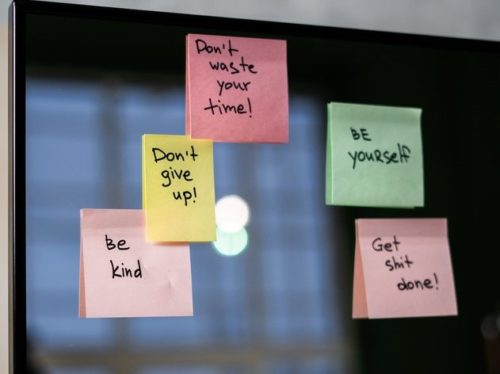Tips for building a website
 Anything worth doing should be worth doing well.
Anything worth doing should be worth doing well.
The website design for DOLL-WORLD, although visually simple, is still not done. I naively thought that with minimal investment of time and cost, I could DIY a visually satisfying and functioning website. But it has taken considerably more time and effort than I hoped or imagine, just to build a bare-bones website.
Did I bite off more than I could chew? Maybe. Would it have been simpler to hire a web designer to build a cookie-cutter website that sorta functions? I don’t think so, because I’d be in the same boat I was before, having to depend on someone else to do the nitty-gritty work to maintain the website, who might not be available when needed. That’s one of the main reasons I opted to build this website myself – so I could understand what it takes to fix it when it breaks, and have the necessary know-how to keep it running so (hopefully) it doesn’t break.
Anyone who has become seriously involved in building a website capable of handling ecommerce knows that putting it all together isn’t as simple as web-hosting companies would have one believe. Have you ever noticed those ads that pop up from companies like Wix and promise that you can have your own personalized website up and running in less that a day? Maybe in just minutes? They make it look so easy. And if all you wanted was a one-page website with some pictures and a little text on it, yes, it could be just that easy.
But if you’re trying to build a website with a lot of features, and you’re not savvy with coding, then you’re left with one option: choosing a generic template close to what you’ve envisioned, and trying to customize it with the (sometimes) rudimentary website-building tools offered by the hosting site. The truth is, there’s a lot more back-end work needed to get a shop up and running, and to set it up a website to handle future community activity and participation. Suddenly you realize there’s a whole lot of extra time, research, and skill-building required.
I’m still in the skill-building phase, and it’s proving to be quite a challenge, given that many “extras” that would come in super-handy for customizing one’s website actually cost a bundle with subscription service fees. I’m still hoping I can get the job done fairly well without shelling out more money. But sometimes not everything worthwhile in life is free – at least when it comes to website building. Beyond the investment of time and money and skill, I’ve come up with a few basic pointers for anyone who might be in the same boat I am.
NOTES TO SELF when designing/building a website:
 START WITH AN IDEA. Figure out what you’re trying to accomplish with your website before trying to create one. The most important question is, “Do you really need/want a website?” If your answer is, “Yes, I want/need a website,” then your next question should be, “Are you prepared to keep up with it for the long haul without getting discouraged at the first sign of trouble?”
START WITH AN IDEA. Figure out what you’re trying to accomplish with your website before trying to create one. The most important question is, “Do you really need/want a website?” If your answer is, “Yes, I want/need a website,” then your next question should be, “Are you prepared to keep up with it for the long haul without getting discouraged at the first sign of trouble?”- TENACITY IS REQUIRED. A website is a commitment to a faceless unknown. You’re virtually hanging up a sign saying, “Hello, world, here I am.” If you are going to all the trouble to create a website, then you must think you have a real need for one. Websites can serve many purposes – to provide information, to serve as a communication gateway, or to offer services or goods to the public. A website is not an isolated task that you finish and walk away from. It requires maintenance and tweaking and new content to keep your audience or customers coming back for repeat engagement. If you’re trying to communicate with others for a purpose, then you will need to be committed to follow up on that purpose. Are you ready for that and all that it potentially entails?
 MAKE A BUSINESS PLAN. If you answered, “Yes,” to the question above, then you should have a plan. Anyone consistently engaging with the public or doing business should have a business plan in mind that includes contingencies for handling extra and unexpected expenses involved with whatever your business is going to be. Be prepared for tax implications, especially if you plan to hire employees or pay contractors. If your main business is products, be prepared for liabilities and associated with selling and shipping products, such as returns and customer service.
MAKE A BUSINESS PLAN. If you answered, “Yes,” to the question above, then you should have a plan. Anyone consistently engaging with the public or doing business should have a business plan in mind that includes contingencies for handling extra and unexpected expenses involved with whatever your business is going to be. Be prepared for tax implications, especially if you plan to hire employees or pay contractors. If your main business is products, be prepared for liabilities and associated with selling and shipping products, such as returns and customer service.- DO YOUR RESEARCH. Knowledge is power. Once you’ve decided on a plan and know what role a website will play in in your plan, you’ll need to find a hosting service for your website. Shop around and carefully compare hosting and domain services to get the best price for the level of service you need. This can help you avoid costly mistakes down the road, like having to switch providers or paying for a level of service you don’t need. Overall long-range cost is only one factor to consider. It’s also important to understand the level of service you’re promised with the hosting plan you choose. Considerations might include bandwidth limitations, especially if you expect high traffic on your site. It’s best to choose a hosting site that can offer levels of service with expansion options, so you can buy more services at a reasonable price as your business grows.
- IT’S ALL IN THE NAME. Pick a great domain name that’s easy to remember and does a good job of indicating your website’s purpose, but not so generic that it’s just like any other random website. Make sure the domain you pay for is YOURS and not owned by the hosting service. (Some hosting services will give you a “free” domain, but it may end up being just a sub-domain of their hosting domain, similar to Webs.com. Your domain with Webs.com would be: https://www.webs.com/yourdomain.)
- DIY OR PAY AN EXPERT. Decide, based on the complexity of the website and your abilities and skill set, whether you can afford to take on the responsibility of building your own website or should opt to pay someone to build it for you. Remember, if you pay someone, you should get unrestricted access to it so that it can be tweaked and repaired even if the original designer is no longer available. If you decide to build your own website, make sure you understand everything that’s involved with that before you take on that huge commitment.
- DON’T GET DISCOURAGED. If you’re going to start a project, you need to finish it to the best of your ability. Even if it sucks, you need to finish it. With a website, you can usually go back in and tweak it or change things around if you find that the initial build isn’t suitable for your growing needs. There are resources online to help you learn the expertise you will need to build and maintain your own website. You do have to be willing and able to put in the time and effort to find answers you need to get the job done.
 DON’T GET DISTRACTED. It’s OK to smell the roses, enjoy the sunset, spend time with your family (a must), and take care of the necessary aspects of your life, like taking a shower and going to work (also a must). But you have to acknowledge you only have 24 hours in a day. If you want to get a project done, you MUST carve out sufficient time in your day to do it. You need to be able to manage your time efficiently while also getting enough rest and making sure you take care of all the other things in your life that need attention. If you have to take a break from your project, allow yourself to do that. But don’t let six months slip by while you spend your extra free time surfing Instagram or Youtube to distract you from the responsibility of getting back to and finishing the project you started. There may be some life situations that demand you stop working on your project, but if at all possible, you should return to and finish what you started!
DON’T GET DISTRACTED. It’s OK to smell the roses, enjoy the sunset, spend time with your family (a must), and take care of the necessary aspects of your life, like taking a shower and going to work (also a must). But you have to acknowledge you only have 24 hours in a day. If you want to get a project done, you MUST carve out sufficient time in your day to do it. You need to be able to manage your time efficiently while also getting enough rest and making sure you take care of all the other things in your life that need attention. If you have to take a break from your project, allow yourself to do that. But don’t let six months slip by while you spend your extra free time surfing Instagram or Youtube to distract you from the responsibility of getting back to and finishing the project you started. There may be some life situations that demand you stop working on your project, but if at all possible, you should return to and finish what you started!- TEST-TEST-TEST. Test your website and double-check all your embedded links to make sure they work before you launch your website. The “down for maintenance” message should not appear on your brand-new website right after you launch it. But do be responsible enough to fix problems as soon as you notice them, even if it means shutting down your website temporarily to repair poorly functioning aspects. Just don’t leave it down very long. A short time at midnight may be all you need to fix a small problem. Try to choose a time when you don’t expect many visitors to your site.
- PERFECTION VS. PRODUCTION. Get your website functioning and published as soon as practical. Work with the resources you have. Don’t use perfection as an excuse to never launch your website. If building the perfect extensive multipurpose website is your dream, but you know it would literally take years to get all the planned functions finished, maybe start on a smaller scale with just the basics, so you can scale up when the need arises. A “starter” house is easier to afford when you’re new to home ownership. It’s also a reasonable path to grow and upscale your residence when your income situation allows you to afford adding on a room here and there. Just make sure your starter house is structured for upscale add-ons, or opt for an initial small investment that allows you to walk away from it when it no longer serves your needs. The same applies to websites. Planning ahead for expected expansion will make growing your website less painful and disruptive.
 DEVELOP MARKETING MOJO. Learn to market your site and your products effectively, or all your effort will be for nothing. Marketing can be fun or it can be a chore – that’s something you must decide for yourself. Most marketing now is done on social media, especially if you can’t justify an advertising budget. If you’re in a position of not being able to afford an advertising budget for Google Adsense and similar modes of advertising, or you have determined that those forms of advertising would not work well for your situation, then social media should become your new best friend.
DEVELOP MARKETING MOJO. Learn to market your site and your products effectively, or all your effort will be for nothing. Marketing can be fun or it can be a chore – that’s something you must decide for yourself. Most marketing now is done on social media, especially if you can’t justify an advertising budget. If you’re in a position of not being able to afford an advertising budget for Google Adsense and similar modes of advertising, or you have determined that those forms of advertising would not work well for your situation, then social media should become your new best friend.- SOCIAL MEDIA IS A NETWORKING AID MORE THAN A MARKETING TOOL. Don’t use social media as a selling tool, where you spam groups with your constant sales pitches like, “Hey guys, I’ve got a new item, check it out!” Use social media as a networking tool to make new friends in communities where your products and your presence could eventually prove beneficial for those with whom you interact. Provide information about your products when appropriate and let others decide whether they are interested in what you have to offer, instead of hounding folks with your constant attempts to sell something. Always check the rules of whatever platform or group you’re on, and abide by them. Be friendly, helpful, and polite when you interact with others. Don’t make a nuisance of yourself, or you will be shunned and ignored by others.
- DON’T NETWORK DOWN A RABBIT HOLE. Always apply common sense limits to your social networking endeavors. The chance is always there that you could become so caught up in social media, that it becomes your new focus, to the detriment of the business that prompted you to start networking in the first place. Social media is set up by the sponsoring corporations strictly for engagement. The longer you are engaged, the more apt you are to be reached by their advertising and marketing schemes built into the platforms they host. Remember: Balance in your life is key to happiness. Stay focused and maintain healthy limits on all aspects of social media engagement.
 FOLLOW THROUGH WITH COMMITMENTS. If you started a website to sell your stuff, whether it’s art or products or whatever, treat it like a business. Because, once you launch a website, you are advertising to the internet world that you are officially in business. Commitment includes providing excellent customer service – fixing order problems, shipping on time, and all the other things any business should do well to build a reliable reputation that will attract customers and keep them coming back.
FOLLOW THROUGH WITH COMMITMENTS. If you started a website to sell your stuff, whether it’s art or products or whatever, treat it like a business. Because, once you launch a website, you are advertising to the internet world that you are officially in business. Commitment includes providing excellent customer service – fixing order problems, shipping on time, and all the other things any business should do well to build a reliable reputation that will attract customers and keep them coming back.
PEP TALK’S OVER NOW, GET BACK TO WORK!
